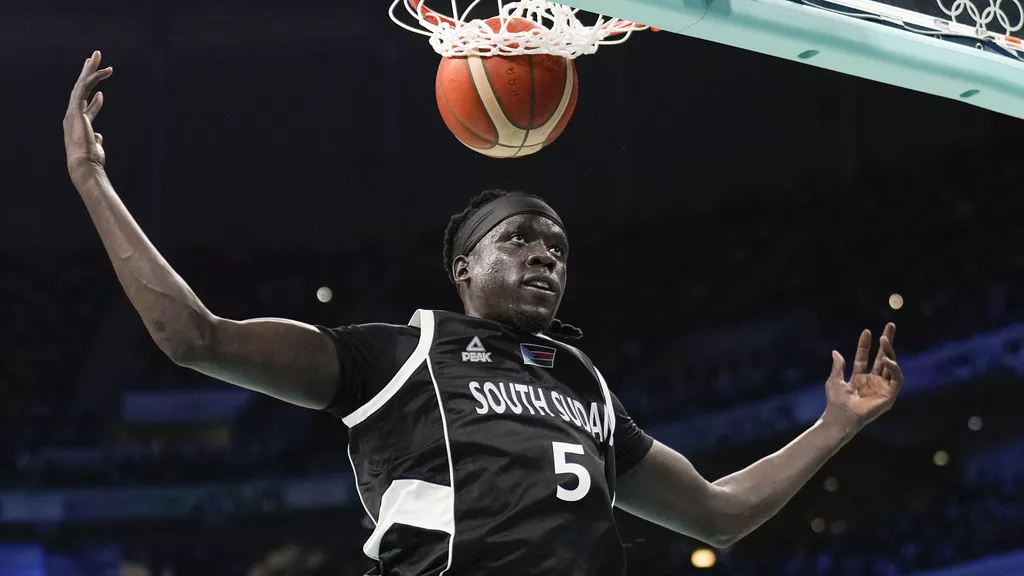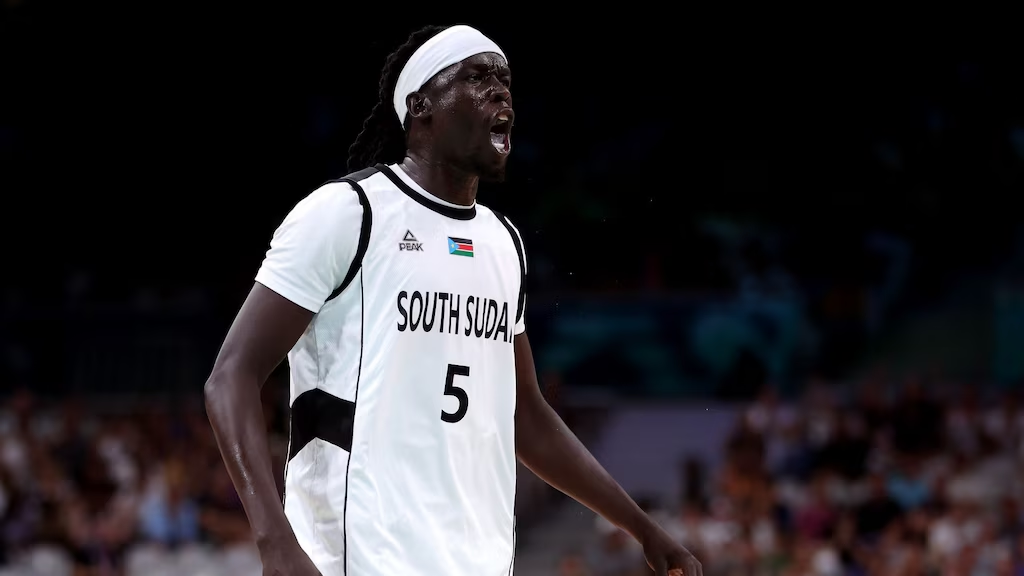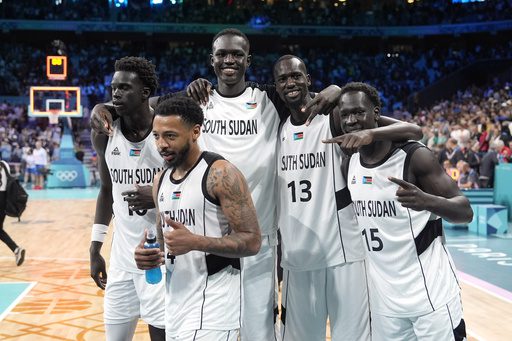South Sudan arrived at the Paris Olympics riding a wave of firsts. As a 13-year-old nation emerging from years of conflict, it marked a monumental achievement by qualifying for its first Olympic basketball tournament. Their Olympic journey began with a historic victory, but Wednesday’s game against the United States introduced them to another milestone: their first Olympic defeat.

A Spirited Performance Against the United States
In a pre-Games showdown, South Sudan impressed by pushing the United States team—stacked with NBA talent—to the brink in a closely contested one-point game. The South Sudanese team’s speed, resilience, and fighting spirit showcased their potential to challenge some of the best players in the world.
However, during Wednesday’s rematch, South Sudan faced a formidable opponent in the United States. Despite some notable plays and a brief lead, the South Sudanese ultimately succumbed to the superior experience and skill of the American team, losing 103 to 86.

Nuni Omot Shines Bright
Nuni Omot emerged as a standout player for South Sudan, leading his team with 25 points. Reflecting on the game, Omot expressed pride in the team’s performance and growth. “A lot of people told me I was meant to play with them,” he said. “I think tonight I showed what I can do. The Olympics is about the top 12 teams that are competing right now. It’s an honor to be part of those 12 teams. People are going to know who I am now. And it’s not about me. But people are going to know who South Sudan is.”

Omot’s performance did not go unnoticed. U.S. star Stephen Curry extended his respect to South Sudan, acknowledging their potential. “They won their first game a few days ago. So who knows how far they can go? You cheer for them, except when we play against them.”
The Game’s Dynamics
South Sudan initially stunned the U.S. team by building a lead as large as 21 points in the first half. However, the Americans tightened their defense and closed the gap, bringing the lead down to 12 points by the fourth quarter. Despite the South Sudanese’s spirited efforts, the clock and a more cohesive American team eventually proved insurmountable.

In a prior exhibition match in London, South Sudan had pushed the U.S. team—chasing a fifth consecutive Olympic gold—to reassess their strategy. This time, the game’s dynamics unfolded differently.
A quick 6-0 deficit prompted South Sudan coach Royal Ivey to call his first timeout just 1:31 into the game to settle his team. After a rocky start of 0-for-4 from the field, Bul Kuol invigorated South Sudan with a dynamic one-handed dunk. Omot followed up with a three-pointer, and Marial Shayok added a layup, giving South Sudan their first lead.
Overcoming Challenges
Despite early momentum, the United States concluded the first period with a 20-6 run, establishing a 26-14 lead at the start of the second quarter. South Sudan struggled to handle the relentless American pressure, facing turnovers and missed opportunities.
One pivotal moment saw Sunday Dech harassed by Jrue Holiday for nearly 10 seconds, leading to a forced bad pass and turnover. Similarly, JT Thor faced difficulty when Anthony Davis pressured him into an off-target shot.
Carlik Jones, who contributed 18 points, reflected on the game: “I think we did what we like to do; they just did a good physical job. They tried to get us out of our positions and out of our plays. We fought until the end.”
The Crowd’s Support and Future Prospects
The atmosphere at the Pierre Mauroy stadium was electric, with the crowd enthusiastically cheering for South Sudan during the pre-match warm-up. Omot embraced the spotlight, donning bright green Nikes with silver stripes that shimmered under the stadium lights, embodying the spirit and determination of the Bright Stars.
Despite the setback, South Sudan remains hopeful and resolute as they prepare to face Serbia in their final group stage match on Saturday. The winner will join the United States in advancing to the knockout round in Paris.
“We have to prepare,” Omot emphasized. “Obviously, last summer they got the best of us. I think we have to prepare. We have to come in with a mindset. Our coaches are doing a great job of preparing. If we follow that plan and play our game, it’s going to be a very competitive game.”
Source: africanews.coma



